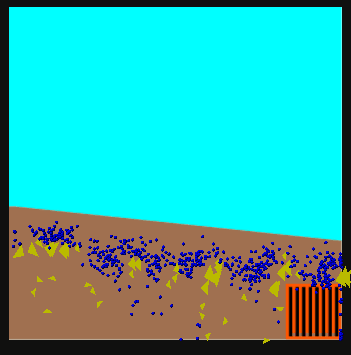Over the summer we were able to pull teachers from Golda Meir’s Middle School and Escuela Vieau together on Zoom with partners from Sweetwater, Caravela IoT, and MMSD for the design phase of our STEM Studio Adopt a Storm Drain project. We used a modified version of a customer journey map to map out the experience we wanted students to have, touch points with community partners, and connections back to curriculum standards. The project will kick off in the next few weeks as participating teachers have students monitor storm drains near their school or home to begin the research work that will prepare them to take on one of the following challenges:
- How can we reduce the volume of litter and debris that collects near storm drains?
- How can we leverage IoT sensors to detect when litter and debris has collected at a storm drain?
- How can we safely remove litter and debris that has collected at a storm drain?
With teachers, curriculum specialists, and partners in on the design process from the beginning, we were able to map out an approach for a collaborative multi-disciplinary effort that will also give students a chance to explore computational tools. The program guide produced for the project provides an overview of the project structure, timing of project events, and links to resources the team wanted students to be able to leverage. That includes a simple model of waste collecting near, and washing down a storm drain we put together using Starlogo Nova that students can manipulate and revise.

This STEM Studio effort is made possible by a grant from Northwestern Mutual

